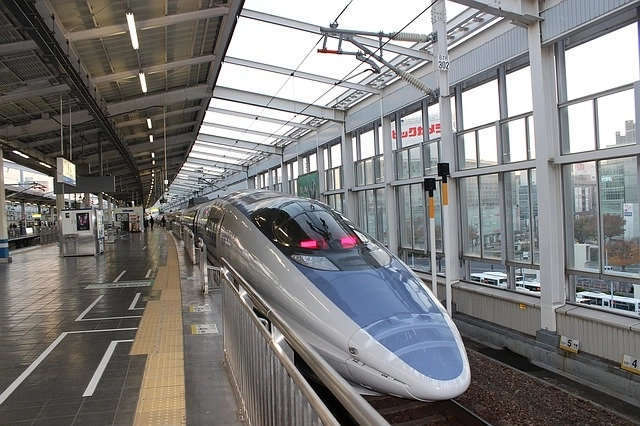Amid the growing concerns over uncertainty in Mumbai-Ahmedabad high speed rail corridor due to the delay in land acquisition and cost escalation, the Railways has reiterated that the ambitious bullet train project is on course.
Besides, the Railways also ruled out any renegotiation on terms and conditions of the loan with the Japanese agency which is funding 81 per cent of the total project cost.
It is estimated that of the total Rs 1,10,000 crore that will be spent on the 508 km long high speed rail corridor project, Rs 88,000 crore will be given to India as loan. These loans will be available at 0.1% interest and India can repay them in 50 years with a moratorium on repayments up to 15 years.
The Japanese International Cooperation Agency (JICA) is funding 81 per cent of the total cost of India’s first bullet train project.
The National High Speed Rail Corporation Limited (NHSRCL), the implementing agency for the project, however, has had to contend with issues ranging from protests by farmers and rising cost of the project due to the widening gap between the Indian rupee and the Japanese yen leading to major rise in costs.
NHSRCL has acquired about 60 per cent land (about 77% land in Gujarat, 80% in Dadar Nagar Haveli and 22% in Maharashtra) needed for the project which has a deadline of December 2023.
However, acknowledging the rising cost, Chairman Railway Board (CRB) VK Yadav agreed that there will be a rise in the cost of the project but denied that there was any renegotiation on the loan with JICA.
“I want to confirm that there is no renegotiation as far as the terms and conditions of the loan is concerned,” Yadav said in a presser.
The bullet train project was launched at a ceremony in Gandhinagar in Ahmedabad in September 2017 attended by the Japanese Prime Minister Shinzo Abe, along with Indian Prime Minister Narendra Modi.
“Yes, there is cost escalation, but this is not the right time to review costs. That will be done when we finalise tenders. As in any project, we finalise the estimated cost based on historic cost. But the actual cost is known only when tenders are invited. That is the time when we come to know what the project cost is shaping up,” Yadav said.
NHSRCL will procure 24 E5 Series Shinkansen train sets to operate on the corridor, of which six are to be assembled in India. The trains are to be customised to operate in Indian conditions
“As far as cost escalation is concerned, in any project whatever the estimated cost may be, when the work is being executed and when work is completed there is bound to be some increase in the cost either due to cost escalation, due to inflation or due to change in design,” CRB said.
The high-speed rail corridor will have 12 stations between Mumbai and Ahmedabad. The proposed stations are Bandra Kurla Complex, Thane, Virar, Boisar, Vapi, Bilimora, Surat, Bharuch, Vadodara, Anand, Ahmedabad and Sabarmati. The bullet train, with the capacity to accommodate 750 people, is expected to reduce the travel time between the two major metropolises to less than three hours from the current seven hours.
According to the feasibility report, if the bullet train stops at these 12 stations, it will cover the distance in two hours and 58 minutes at a speed of 320 kmph. However, if the train stops at only four stations, the distance can be covered in two hours and seven minutes.
CRB said due to the COVID-19 situation the land acquisition process faced some delays and that by this financial year the process will be completed. He said the physical work on the project will begin after 90 per cent of the land has been acquired.
Tenders have also been invited for nine packages so far, he added.
Of the 508 km route, 468 km of the track will be elevated, 27 km of the route will have a tunnel and the remaining 13 km will be on the ground. The 27 km of tunnel will pass through seven kilometres under the sea near Thane, making it India’s first underwater rail route.


